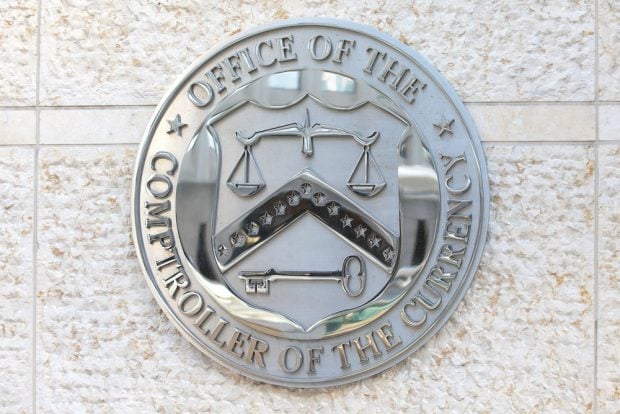 Source: Shutterstock.
Source: Shutterstock.
Financial trade groups, including CUNA and NAFCU, have asked congressional leaders to intervene in plans by the Office of Comptroller of the Currency to issue special bank charters to payments companies.
"We oppose any effort by the OCC to offer a payments charter, particularly one that would ultimately grant these companies access to the Federal Reserve payments system — the most critical part of our country's financial infrastructure — and its corresponding federal safety net without protecting the financial system and consumers from the concomitant increase in systemic risk," the groups wrote in a letter to congressional leaders Tuesday.
Recommended For You
Acting Comptroller Brian Brooks has said he plans to offer special charters to companies handling payments, despite vehement opposition by traditional financial services trade groups. Among other things, they contend that Brooks should use the traditional rulemaking process, which allows for public comment before authorizing the new category of charters.
State banking supervisors have contended that Congress, not the comptroller, is the proper venue for such questions.
"While the OCC disregards the statutory limits of its authority as set by Congress and the rule of law in ignoring a federal court ruling, state regulators are focused on their responsibility to protect consumers and foster economic development across the country," John Ryan, president/CEO of the Council of State Bank Supervisors, said in August.
However, Brooks said that he believes he can grant new charters without going through the regulatory process.
In their letter, the financial trade associations told congressional leaders that innovation cannot come at the cost of ensuring a safe and sound banking system. They said the charter would raise several regulatory concerns — notably the longstanding principles of separating banking and commerce, as well as consumer protection issues.
They said it is unclear whether the parent companies of the new special purpose bank would be subject to the Bank Holding Company Act, the Federal Reserve Act, the Community Reinvestment Act and other regulatory laws.
They added that there also are questions about whether the new chartered companies should be able to gain access to the Federal Reserve payment system.
"In order to help fully understand all the potential consequences, any efforts to grant a new type of bank charter need to be conducted through an open and deliberative notice and comment process," the groups said. "We also believe that Congress should have a role in these deliberations, including whether a federal money transmitter license that would preempt a patchwork of state licensing laws is practical."
© Touchpoint Markets, All Rights Reserved. Request academic re-use from www.copyright.com. All other uses, submit a request to [email protected]. For more inforrmation visit Asset & Logo Licensing.






